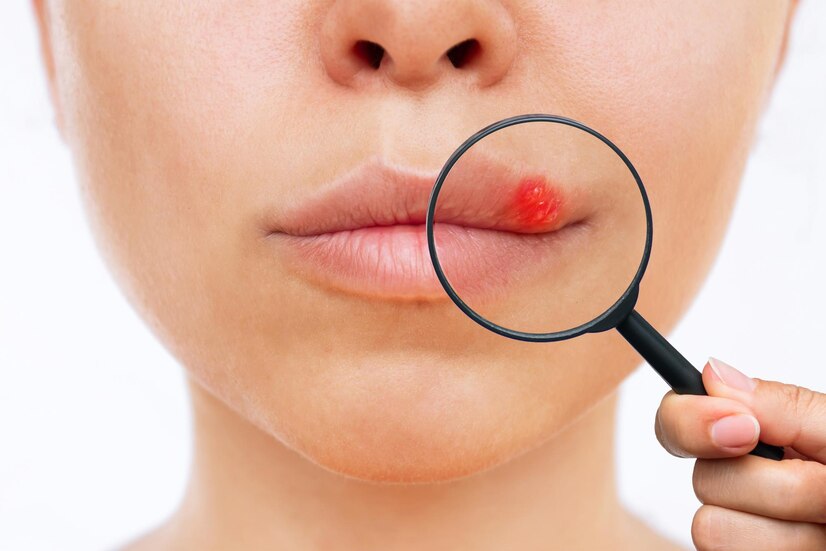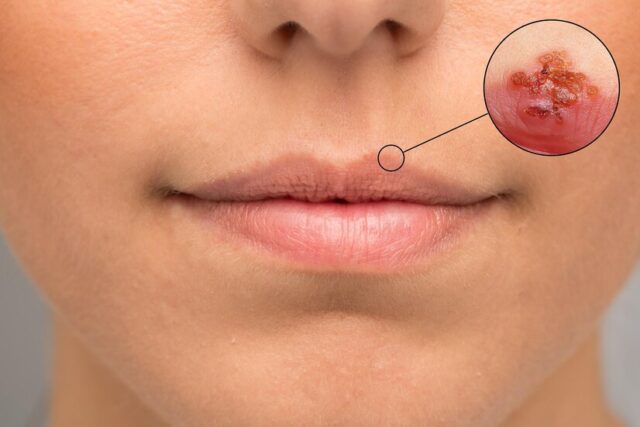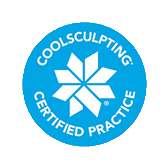Cold Sores Flare Up due to Laser Hair Removal

Cold Sores Flare Up due to Laser Hair Removal
If you have a history of cold sores (oral herpes simplex infection),
laser hair removal treatment can trigger a ‘flare up’
especially on upper lip, chin, lower cheeks or bikini area
This is because – exposure to the laser light and heat can activate the HSV1 virus
Symptoms
There are 5 stages. At first, you have the telltale burning, tingling or itching sensation. Then painful, clear fluid-filled blisters will break out often grouped together in patches. After a day or two, the blisters break and the fluid oozes out forming crusting and superficial ulcers. It’s contagious at this stage. Then the ulcers will scab over forming a yellow-brown crust. And finally, the scab will flake off and healthy healing will occur, and your skin will return to normal. Usually, it will heal in 2 weeks without leaving a scar.
What does it look like?
Clear fluid filled blisters that are painful, red & itchy. Sometimes there is oozing and crusting scabs. And sometimes you can develop yellow pustules or pimples which is a bacterial infection on top.
Treatment
3 OTC creams = Ab
reva, Cortizone10 and Neosporin
- Use Abreva 5x a day for up to 7 days
- Use Cortizone10 and Neosporin cream both together 3x day up to 7 days
- Abreva – Is an antiviral cream that prevents the virus from multiplying. Start using it as soon as you feel the tingling and itching.
- Cortizone10 – Is an anti-inflammatory cream. It will help with pain, redness, itching and swelling.
- Neosporin cream – Is an antibiotic. It will help prevent bacterial infection
- You can also use Oral Tylenol or Ibuprofen for pain
Preventing Spread and Further Complications
Just like your smile , it’s contagious so take these steps to avoid spreading cold sores to other people.
- Avoid kissing and skin contact with people while blisters are present
- Avoid sharing personal items like towels
- Wash your hands thoroughly before touching other people, especially babies
When to call your doctor?
If blisters get bigger or spread. If you develop high fever or symptoms get worse. You might need a prescription antiviral medication eg Valtrex
How to prevent flare-ups with future Laser Hair Removal Treatments
Start Abreva & Cortizone10 cream 3x a day for 2 days prior to laser treatment and continue for 2 days afterward.
Another option is a Pre-Treatment Prescription antiviral medication eg Valtrex or Famvir.
Funny
Cold sores are not fun. Here’s some humor to cheer you up:
- Tell people that you have a contagious smile that’s spreading joy everywhere you go!
- You posted your story online and it went viral!
Remember, laughter is the best medicine, even when it comes to laser induced cold sores.
Laser hair removal
is a popular cosmetic procedure known for its effectiveness in removing unwanted hair. However, what many people may not realize is that this procedure can sometimes trigger cold sore flare-ups in certain individuals. Cold sores, also known as fever blisters, are caused by the herpes simplex virus (HSV), and their recurrence can be influenced by various factors, including laser hair removal.
The connection between laser hair removal and cold sore flare-ups
lies in the stress the procedure places on the skin. Laser hair removal works by targeting the hair follicles with concentrated light energy, which can cause temporary irritation and inflammation in the treated area. This stress on the skin can weaken the immune system’s ability to suppress the herpes simplex virus, leading to a reactivation of the virus and subsequent cold sore outbreak.
Moreover, the heat generated during laser hair removal can further exacerbate the situation. Elevated temperatures can stimulate the herpes simplex virus, promoting its replication and increasing the likelihood of a cold sore eruption. Additionally, the process of laser hair removal can create micro-injuries in the skin, providing an entry point for the virus to spread and manifest as cold sores.
For individuals prone to cold sores
it is crucial to take preventive measures before undergoing laser hair removal. Consulting with a dermatologist or healthcare professional beforehand can help assess the risk factors and develop a personalized plan to minimize the chances of a cold sore outbreak. This may involve starting antiviral medication prior to the procedure or using topical treatments to strengthen the skin barrier.
Furthermore, proper post-treatment care is essential to mitigate the risk of cold sore flare-ups. This includes keeping the treated area clean and moisturized, avoiding exposure to direct sunlight, and refraining from picking or scratching at the skin. Following these guidelines can help promote healing and reduce the likelihood of cold sore recurrence.
In conclusion, while laser hair removal offers a convenient solution for hair removal, it’s essential to be aware of its potential to trigger cold sore flare-ups in susceptible individuals. By taking proactive steps to protect the skin and consulting with healthcare professionals, individuals can enjoy the benefits of laser hair removal while minimizing the risk of cold sore outbreaks.







